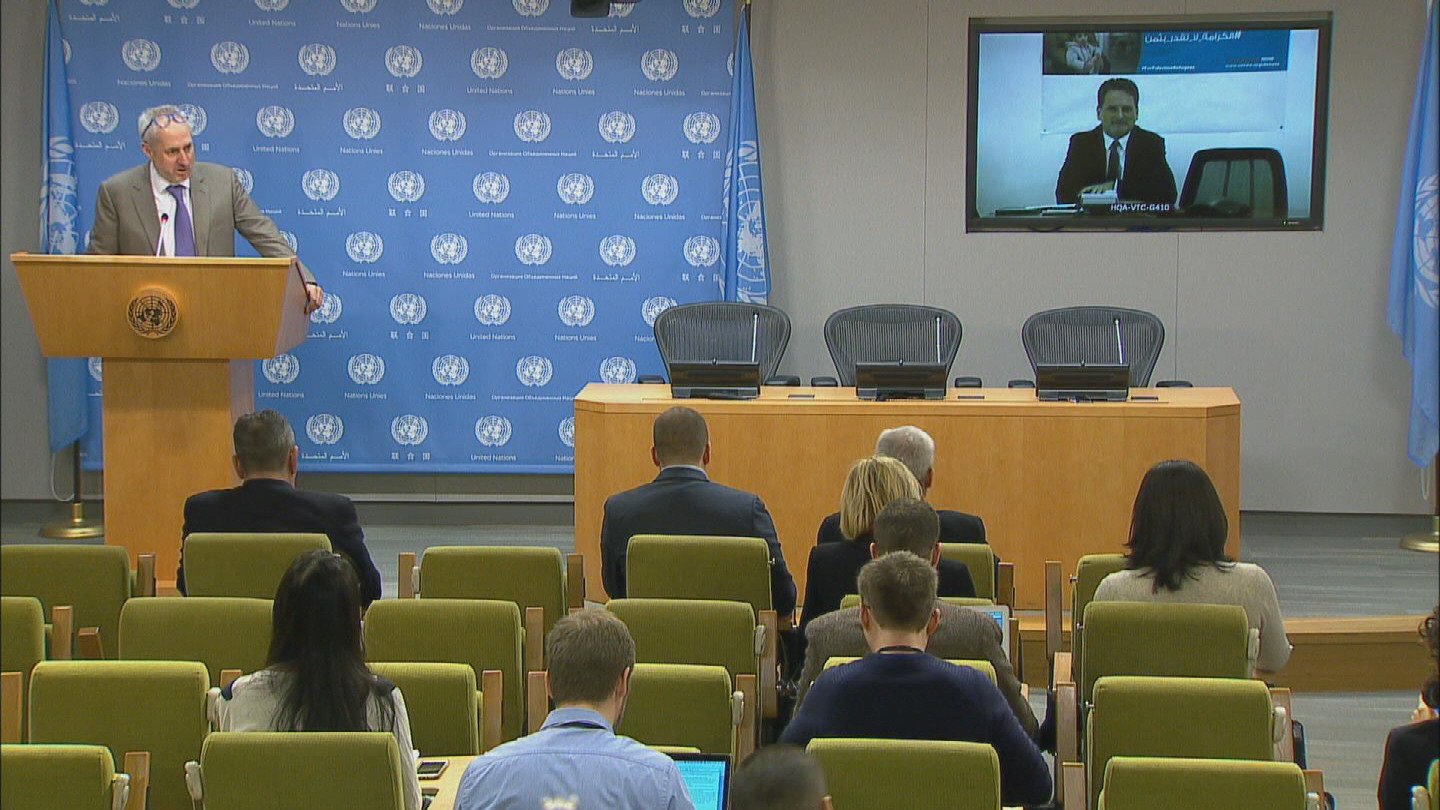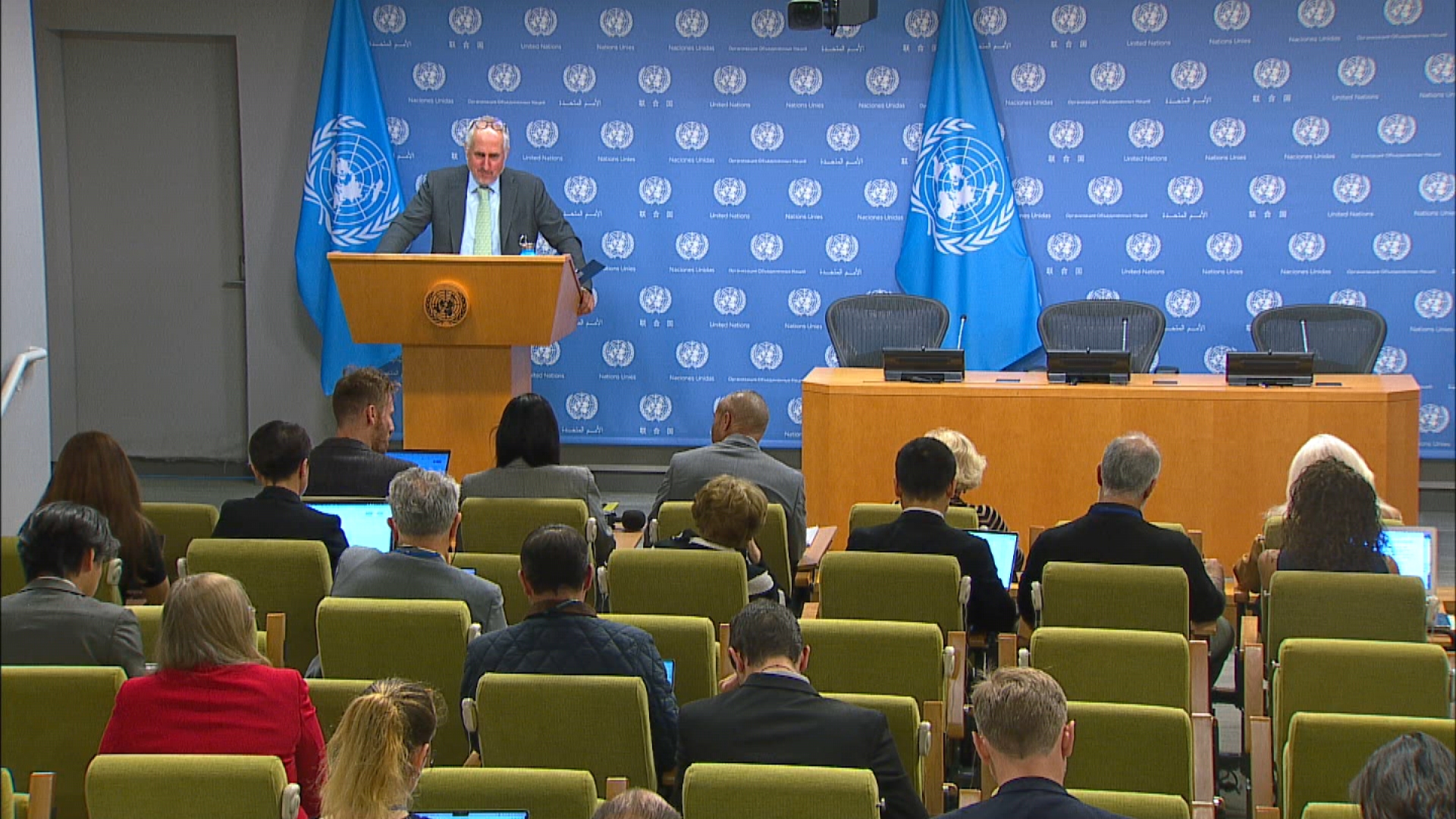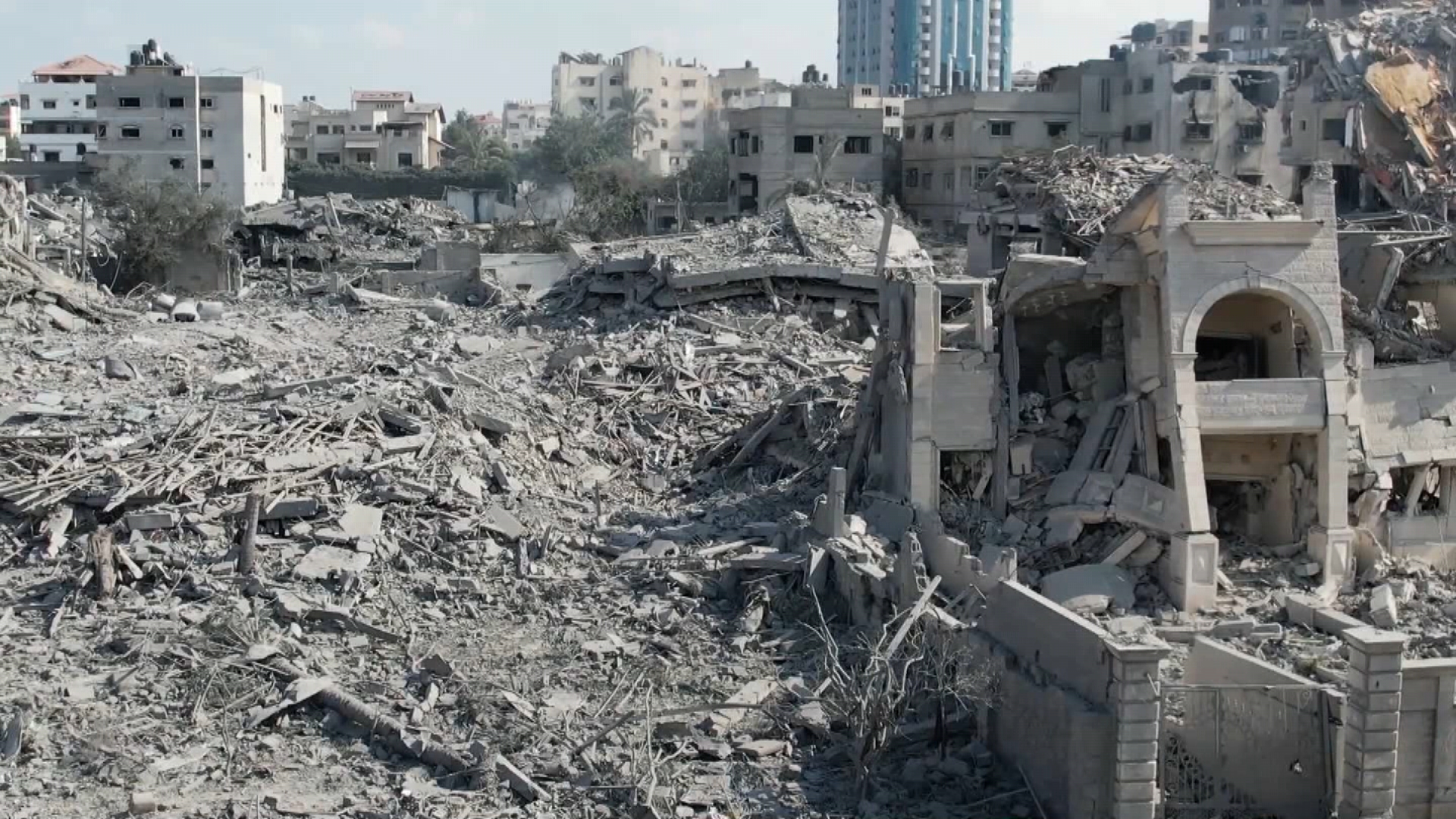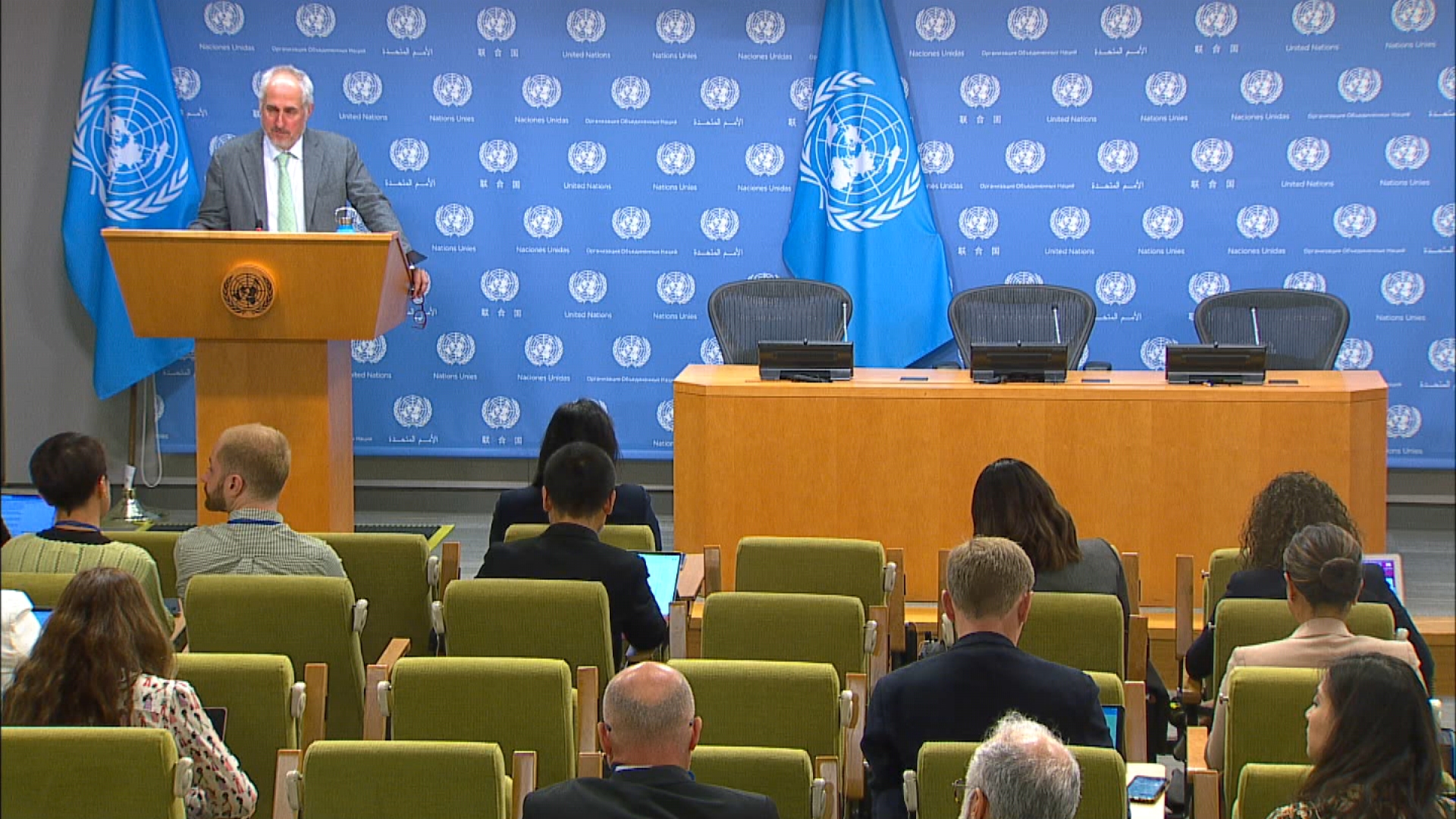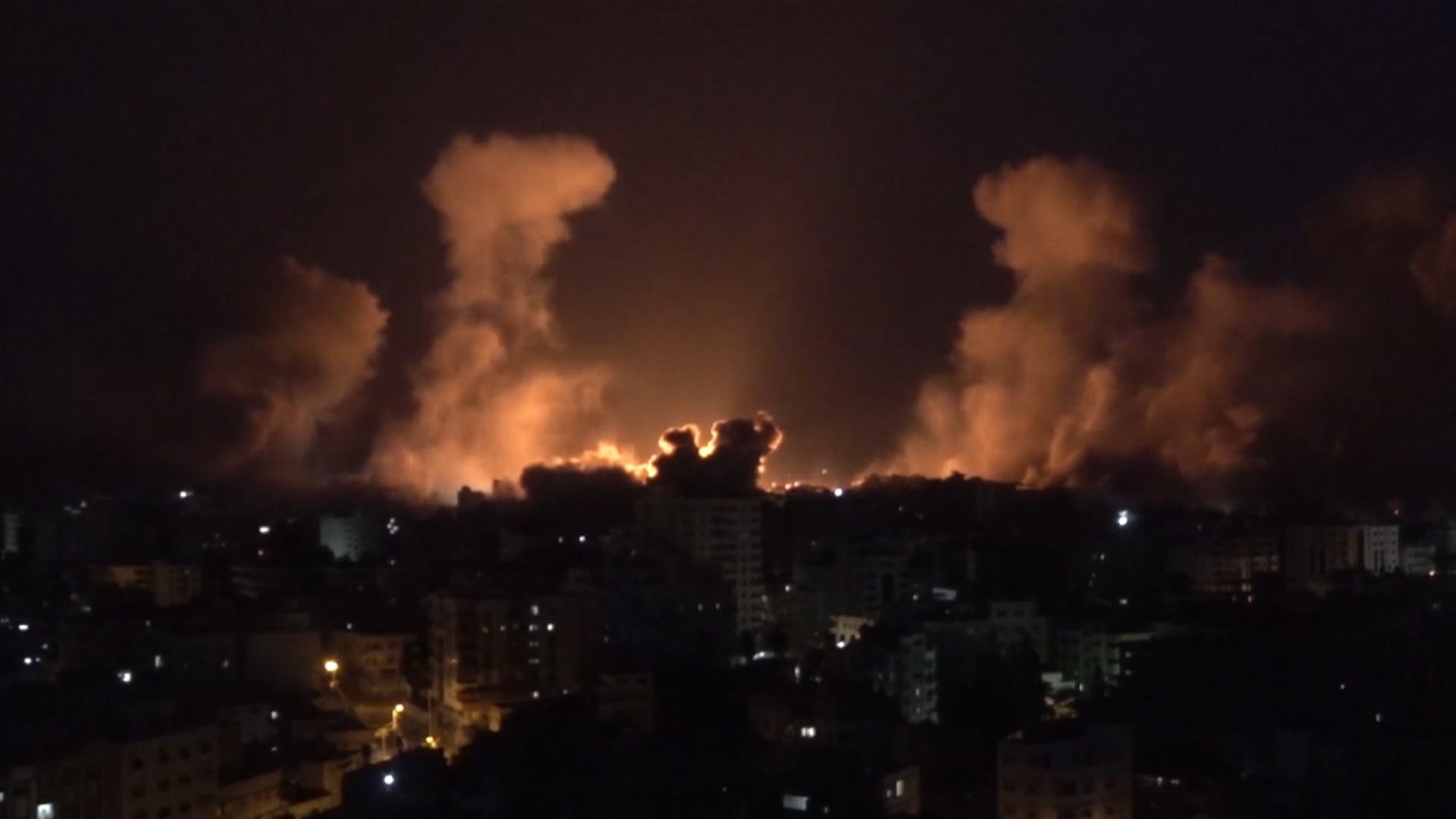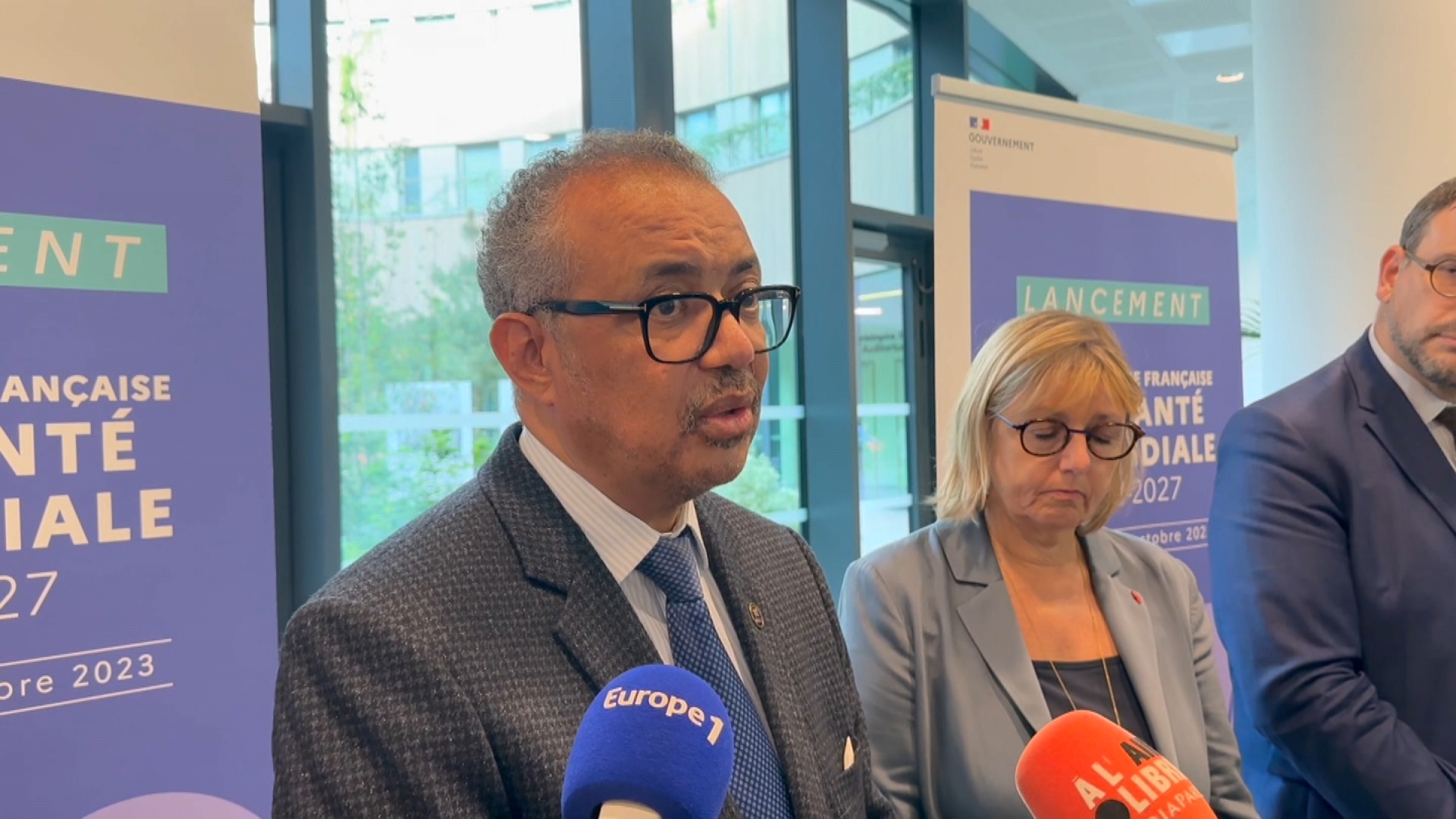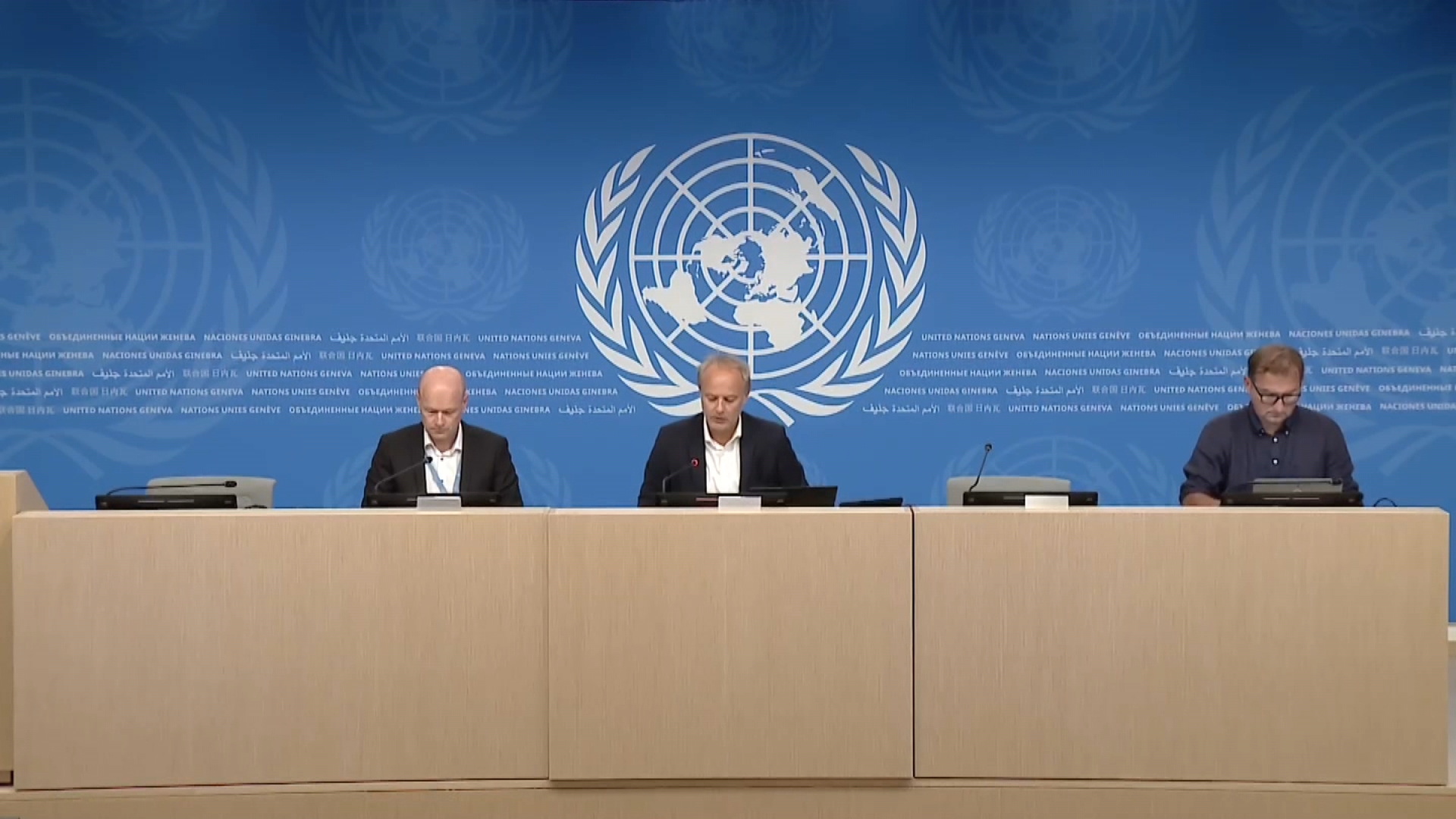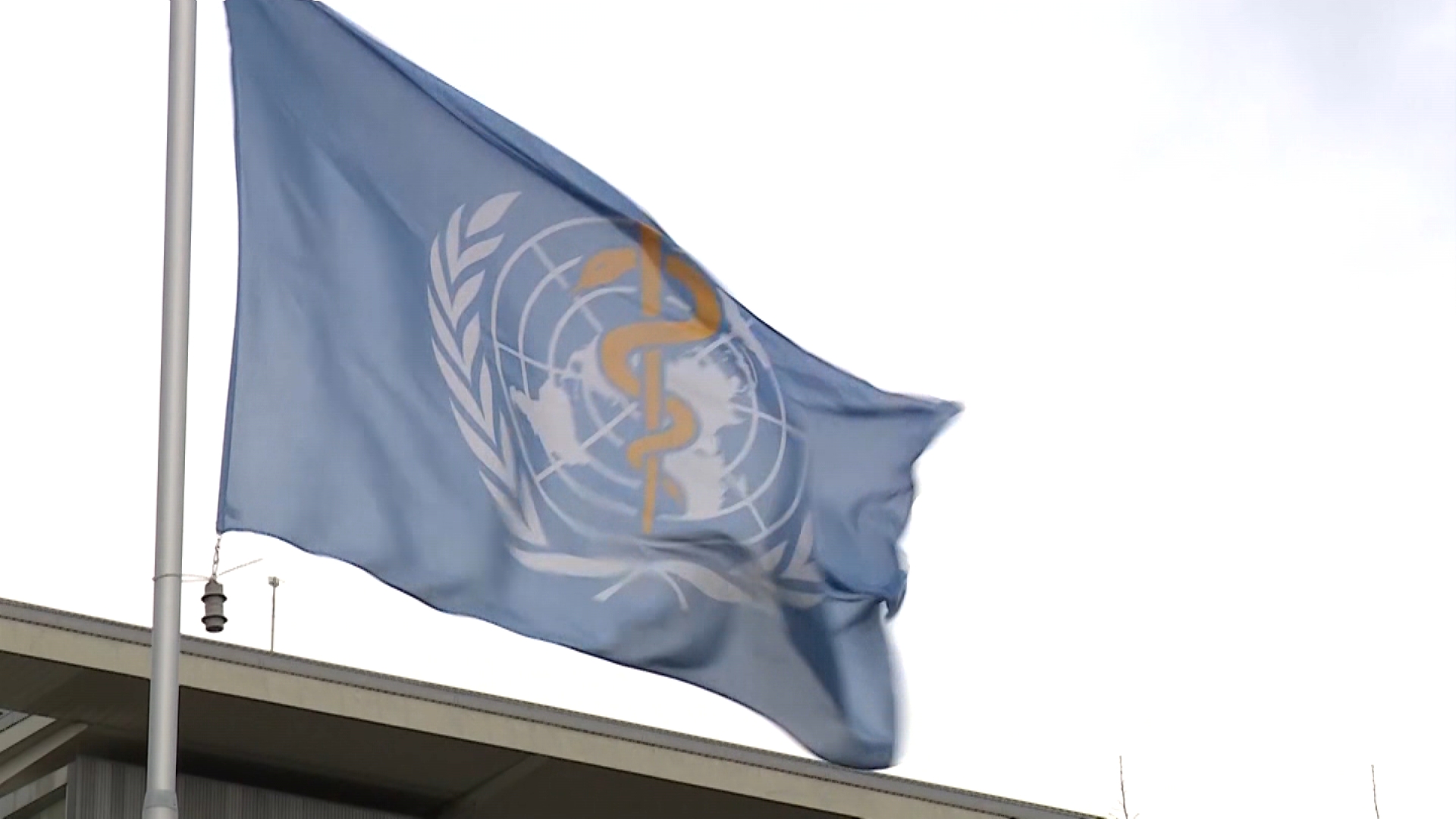UN / GAZA SIGRID KAAG INTERVIEW
STORY: UN / GAZA SIGRID KAAG INTERVIEW
TRT: 8:07
SOURCE: UN NEWS
RESTRICTIONS: PLEASE CREDIT OCHA FOOTAGE ON SCREEN
LANGUAGE: ENGLISH / NATS
DATELINE: 22 APRIL 2024, NEW YORK CITY / 17 APRIL 2024, GAZA / FILE
FILE – NEW YORK CITY
1. Wide shot, exterior, United Nations Headquarters
22 APRIL 2024, NEW YORK CITY
2. Wide shot, Kaag at the interview
3. SOUNDBITE (English) Sigrid Kaag, Senior Humanitarian and Reconstruction Coordinator for Gaza, United Nations:
“What I saw, of course, in the different parts of Gaza, we drove through this visit - it was my fourth one, was extensive destruction. Speaking to people and hearing from them how they been impacted, hearing about their loss, their trauma. And of course, also how they even managed to cope under the very, very dire, nearly dehumanizing conditions the majority of Gazans are living under.”
4. Wide shot, Kaag at the interview
5. SOUNDBITE (English) Sigrid Kaag, Senior Humanitarian and Reconstruction Coordinator for Gaza, United Nations:
“What we've done in the last months, we have established an integrated database. We have negotiated routes, the so-called Jordan route. We have been working with others on the maritime corridor, but of course, also the, harnessing the importance of the Egyptian route via Rafah, to ensure that we have access points, that we can increase the volume and that we can actually track, notify and have a better sense of what will be going to Gaza, in support of the priorities set by the Humanitarian Country Team. And then within Gaza, understand that it's reaching people and it gets distributed in the optimal manner. See, a mechanism is not a sacred entity. It is a platform in a way that provides visibility, helps prioritization, and gives data. And ultimately it should smooth the process. So we take away all the unnecessary delays. We know what's happening. And it ultimately also provides for transparency that is very much needed.”
6. Wide shot, Kaag at the interview
7. SOUNDBITE (English) Sigrid Kaag, Senior Humanitarian and Reconstruction Coordinator for Gaza, United Nations:
“I've said it many times before, it is not a substitute to the importance of assistance in a future recovery and reconstruction goods reaching the Gaza Strip. It's all about land, land and land, and this is our ultimate focus. But additionality is welcome. Given the complexity of the situation and the totality of needs, not only now, but also in future.”
8. Wide shot, Kaag at the interview
9. SOUNDBITE (English) Sigrid Kaag, Senior Humanitarian and Reconstruction Coordinator for Gaza, United Nations:
“And people, risk their lives in the service of others. It is the most noble sacrifice, but we shouldn't be in that position. So Deconfliction has been a long ask, and a longstanding and important topic of discussion - but of course active negotiation. Deconfliction is a very sensitive and complex process, but it needs very clear understandings: Communication, the respect, of course, for the role of the humanitarian workers and agreements on how this is operated. This affects convoys. It affects places of distribution. It affects very clear and very specific agreements that we have been negotiating with the Israeli authorities and in particular, of course, where the IDF has a key role to play.”
10. Wide shot, Kaag at the interview
11. SOUNDBITE (English) Sigrid Kaag, Senior Humanitarian and Reconstruction Coordinator for Gaza, United Nations:
“We have the duty and the responsibility to ensure that we start to work towards early recovery. Think about the reconstruction and also the financing. I am acutely aware, of course, that it's intrinsically tied to progress on the political front, the two-state solution. But we cannot ask civilians to wait. You know, lives go on and people have suffered a lot.”
12. Wide shot, Kaag at the interview
13. SOUNDBITE (English) Sigrid Kaag, Senior Humanitarian and Reconstruction Coordinator for Gaza, United Nations:
“The healing of the soul is intrinsically personal. And I think it's very hard to even for us, on the safety of the outside world, to even start to comprehend what people have been going through. Children that are suddenly without a known living relative. Children who have had to suffer amputations without anesthesia. Families that have lost their children, their homes, have been displaced multiple occasions within a very narrow Strip. But this too needs immediate attention. Recovery is not only physical, it is also support for the healing of the soul to somehow give trauma a space and a place. This is a baggage that people are asked to carry for life. But here, to my mind, this is where immense focus on psychosocial support and mental health support in crisis settings, or rather mental health and psychosocial support (MHPSS).”
14. Wide shot, Kaag at the interview
15. SOUNDBITE (English) Sigrid Kaag, Senior Humanitarian and Reconstruction Coordinator for Gaza, United Nations:
“Whilst the Palestinians in Gaza have been ultimately very resilient, they need significant support. We need the experts. We need, the psychologists, the psychiatrist. We need to train the trainers. But an entire population is traumatized. So it's very different. And it asks us, all of us also with a lot of expertise from within the region, to think and work very differently. And we need to plan for that from now. But if you ask today, the first ask, of course, of many Palestinians, I speak on my field visits: ‘Give me dignity’. And of course, this is very complex, but we need to start very practically, but never forgetting about the soul, human beings, human dignity. This is equal for all of us, whomever we are, wherever we are.”
16. Wide shot, Kaag at the interview
17. SOUNDBITE (English) Sigrid Kaag, Senior Humanitarian and Reconstruction Coordinator for Gaza, United Nations:
“Everything we do, Palestinian civil society needs to very much be on the forefront alongside the return of the Palestinian Authority, because they know their people, they've been there, they have expertise, and they're already thinking they already had ideas again to restart. Now, I think many people wouldn't have the mental strength or the physical strength. So I would say, you know, more than hats off. So let's not forget their immense courage and determination. And we need to cultivate that. We need to nurture it.”
18. Wide shot, Kaag at the interview
OCHA - 17 APRIL 2024, GAZA
18. Various shots, destructions
19. Various shots, Kaag in Gaza
UN NEWS – 17 ARPIL 2024, GAZA
20. Various shots, Kaag in Gaza
In an interview at UN headquarters on Monday (22 Apr), Senior Humanitarian and Reconstruction Coordinator for Gaza, Sigrid Kaag said that many Palestinians told her during her recent visit to the Strip, “Give me dignity.”
The Senior Humanitarian and Reconstruction Coordinator concluded a visit to the Gaza Strip on Wednesday (17th Apr). While there, she went to Khan Younis where she witnessed the war’s impact on Palestinian civilians first-hand. Kaag also visited a maternity ward in an International Medical Corps field hospital, as well as the Nasser Medical complex. She spoke with the director and medical staff at Nasser about the challenges of securing entry and supplies of urgently needed medical items.
Kaag said, “What I saw, of course, in the different parts of Gaza, we drove through this visit - it was my fourth one, was extensive destruction. Speaking to people and hearing from them how they been impacted, hearing about their loss, their trauma. And of course, also how they even managed to cope under the very, very dire, nearly dehumanizing conditions the majority of Gazans are living under.”
On Resolution 2720, the Senior UN official noted two most important two aspects - facilitation, acceleration, expedition of humanitarian assistance going into Gaza; and the establishment of a mechanism to support all that, and ultimately also in support of the collective efforts by the UN, international NGOs, also Palestinian NGOs and the broader international community.
Kaag said, “What we've done in the last months, we have established an integrated database. We have negotiated routes, the so-called Jordan route. We have been working with others on the maritime corridor, but of course, also the, harnessing the importance of the Egyptian route via Rafah, to ensure that we have access points, that we can increase the volume and that we can actually track, notify and have a better sense of what will be going to Gaza, in support of the priorities set by the Humanitarian Country Team. And then within Gaza, understand that it's reaching people and it gets distributed in the optimal manner.”
“A mechanism is not a sacred entity. It is a platform in a way that provides visibility, helps prioritization, and gives data,” the Senior Humanitarian and Reconstruction Coordinator reiterated.
She added, “ultimately it should smooth the process. So we take away all the unnecessary delays. We know what's happening. And it ultimately also provides for transparency that is very much needed.”
On the possibility of maritime corridor, Kaag said that it is still a very active work in progress, adding that under the mechanism and her mission, she is hosting the Secretariat in support of the Member States that want to send cargo via Cyprus.
There are monitors deployed in Cyprus, and her office is supporting the process, from the start and hopefully also to the end point, she added.
The Senior Humanitarian and Reconstruction Coordinator emphasized, “I've said it many times before, it is not a substitute to the importance of assistance in a future recovery and reconstruction goods reaching the Gaza Strip. It's all about land, land and land, and this is our ultimate focus. But additionality is welcome. Given the complexity of the situation and the totality of needs, not only now, but also in future.”
Regarding concerns over the safety of humanitarians in Gaza, Kaag said, “people, risk their lives in the service of others. It is the most noble sacrifice, but we shouldn't be in that position.”
She continued, “Deconfliction has been a long ask, and a longstanding and important topic of discussion - but of course active negotiation. Deconfliction is a very sensitive and complex process, but it needs very clear understandings: Communication, the respect, of course, for the role of the humanitarian workers and agreements on how this is operated. This affects convoys. It affects places of distribution. It affects very clear and very specific agreements that we have been negotiating with the Israeli authorities and in particular, of course, where the IDF has a key role to play.”
Kaag reiterated, “We have the duty and the responsibility to ensure that we start to work towards early recovery. Think about the reconstruction and also the financing,” adding that she is “acutely aware, of course, that it's intrinsically tied to progress on the political front, the two-state solution.”
“But we cannot ask civilians to wait. You know, lives go on and people have suffered a lot,” she said.
The senior UN official also said, “The healing of the soul is intrinsically personal. And I think it's very hard to even for us, on the safety of the outside world, to even start to comprehend what people have been going through.”
“Children that are suddenly without a known living relative. Children who have had to suffer amputations without anesthesia. Families that have lost their children, their homes, have been displaced multiple occasions within a very narrow Strip. But this too needs immediate attention. Recovery is not only physical, it is also support for the healing of the soul to somehow give trauma a space and a place,” Kaag reiterated.
She continued, “This is a baggage that people are asked to carry for life. But here, to my mind, this is where immense focus on psychosocial support and mental health support in crisis settings, or rather mental health and psychosocial support (MHPSS).”
“Whilst the Palestinians in Gaza have been ultimately very resilient, they need significant support," the UN official said, adding that “we need to start very practically, but never forgetting about the soul, human beings, human dignity. This is equal for all of us, whomever we are, wherever we are.”
Kaag also said, “Everything we do, Palestinian civil society needs to very much be on the forefront alongside the return of the Palestinian Authority, because they know their people, they've been there, they have expertise, and they're already thinking they already had ideas again to restart.”
She concluded, “let's not forget their immense courage and determination. And we need to cultivate that. We need to nurture it.”
The Senior Humanitarian and Reconstruction Coordinator also went to Tel Aviv following her visit to Gaza and held a meeting with Israeli Prime Minister Benjamin Netanyahu, as well as other Israeli Cabinet officials.
